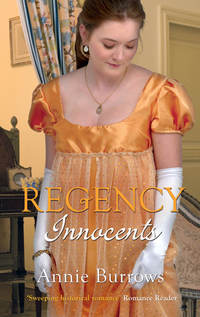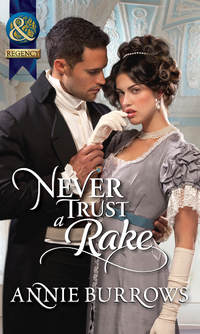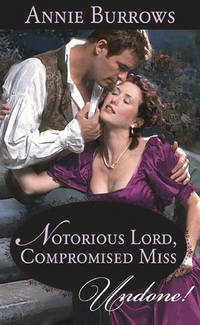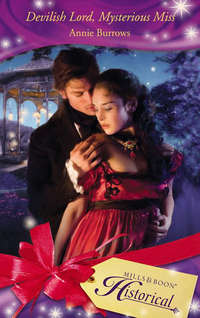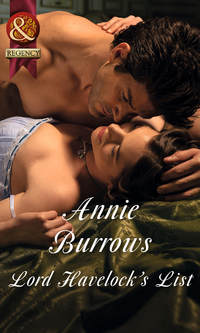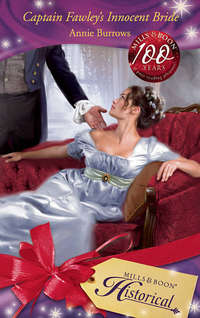
Полная версия
Four Regency Rogues
The woman swivelled round to look Roland up and down as if unable to believe this rough-looking man in the faded overalls could possibly be a member of the aristocracy.
‘The lady ain’t bamming,’ Travers put in. He had been busy catching the horses, which, apart from a tendency to take fright, were unharmed. ‘So you’d be wise to address his lordship with more respect, especially if you want him to help you.’
‘Oh, I do. My lord, I cannot think what came over me. The shock, I suppose. Please forgive me. I took you for—’ She stopped, not daring to put into words what she had taken him for.
‘It is no matter, ma’am,’ Roland said, doing his best to be serious at the woman’s complete volte-face. Then, to Travers, ‘Do you think we can right this coach?’
‘Don’t see why not.’
The two men, both exceptionally big and strong, strode over to the coach and, with a great deal of heaving and pushing and rocking of it, managed to turn it back on to its wheels. Roland went all round it, examining it carefully. ‘I think it could be driven,’ he said. ‘If you take it slowly, it will carry you to the next posting inn.’
‘Thank you, my lord,’ the woman’s husband said. ‘But Greaves is in no case to drive. Perhaps your man…’
‘What about it, Travers?’ Roland asked. ‘Fancy tooling a coach, do you?’
The corporal, busy harnessing the horses again, looked up and grinned. ‘Very well, sir, but what about the wall?’
‘We will finish it tomorrow. Miss Cartwright and I will carry the boy home and deliver him safely to his mother. I am sure Mr…’
‘Halliwell,’ the man said. ‘James Halliwell, at your service, my lord. I will furnish your man with the wherewithal to return home.’
‘Then I suggest you help Mr Greaves into the coach, and off you go.’
‘Inside?’ Mrs Halliwell squeaked, looking at her coachman, who was now sitting up, but still looking decidedly dazed. She obviously thought it was beneath her dignity to ride inside with a servant.
In the event Greaves disdained the comfort of an inside seat and insisted he would be perfectly at ease sitting beside Travers on the box and proved it by getting shakily to his feet and climbing up there. Mr and Mrs Halliwell clambered in and Roland secured the broken door with a strap and they set off, walking the horses very slowly and carefully.
Charlotte, still kneeling beside young Tommy, watched them go, then turned back to the boy, who was moaning softly.
‘Do you think he is hurt anywhere beside his head?’ she asked, stroking the boy’s muddy cheek with a gentle finger. ‘I do not think he can speak because of his deafness.’
Watching her, he suddenly realised he was seeing a very different woman from the one he had hitherto encountered and could not help gazing at her. Gone were the strong features, the firm jawline, the glittering eyes, the coldness of the hoyden, and in their place was a mouth that was tenderly soft and eyes full of warmth, as she comforted the boy. It was most disconcerting. He pulled himself together to answer her. ‘A doctor will be able to tell,’ he said. ‘We must send for one at once.’
‘I will fetch Dr Sumner. It will only take a few minutes on Bonny Boy.’
‘Very well. I will carry the boy to his home if you tell me where that is.’
‘The thatched cottage beside the church. His name is Tommy Biggs.’
‘Biggs?’ he queried, as he helped her to mount. ‘That is the name of the family you mentioned, is it not?’
‘Yes, it is,’ she said, surprised that he had remembered it. She had not thought he had even been listening.
Unfortunately, Dr Sumner was out on a call, but his housekeeper promised to give him a message as soon as he returned and Charlotte had to be content with that. She emphasised the urgency and rode back to the Biggs’s cottage where she found Roland sitting on a stool beside a dilapidated sofa on which the boy was lying. Mrs Biggs, her face white and drawn, admitted her and then went to stand beside his lordship to look down on her son. Two toddlers hung on to her skirts.
‘How is he?’ Charlotte asked.
‘He seems confused. His lordship has said it often happens after a blow on the head, but it should not last. I do not know what would have happened if his lordship had not been there, ma’am. He could have been killed. He should not have been so far from home, I don’t know what got into the little devil.’
‘He is like all small boys, Mrs Biggs,’ Roland said. ‘Into mischief, and the fact that he is deaf does not alter that.’ He smiled at the boy and was repaid with a brave grin in return. ‘He is a plucky little fellow.’
‘The doctor is coming,’ Charlotte said. ‘I left a message.’
‘Oh, but, ma’am, I ain’t sure tha’s necessary. He’ll be his old self by and by…’
‘Better be on the safe side,’ Charlotte said, knowing the reason for the woman’s reluctance and producing the coins Mr Halliwell had given her from the pocket of her habit. ‘The man with the coach was most apologetic and anxious to do what he could to help. He gave me this to pay for a doctor and anything else Tommy needs.’
‘Oh, thank you, ma’am. Perhaps it would be best to have him checked over…’
Again she offered refreshment and again was politely refused and Charlotte and Roland left soon afterwards, with Charlotte promising to return to find out what the doctor said and if there was anything else Tommy needed.
‘You do care for those people, don’t you?’ Roland said, taking up the reins of her horse and leading it, obliging her to walk beside him.
‘It would be a callous person who did not.’
She was still on her high ropes, he realised, trying to teach him his duty, to make him feel guilty. He decided not to rise to the bait. ‘Enough to take on their welfare?’ he queried.
‘The two oldest girls, Beth, who is fourteen, and Matty, who is a little over a year younger, are my employees. You met them. I am told you gave them half a crown.’
‘So I did. Your mill hands, shut out because they were too polite not to answer me when I spoke to them.’
‘One cannot let tardiness go unpunished,’ she said. ‘But I have told Mr Brock that, in future, anyone who arrives late will not be locked out, but will lose half an hour’s pay for every five minutes. After all, I am the loser when their looms stand idle all day.’
He laughed. Her good deeds seemed to be tempered with self-interest. But was that really true? She seemed genuinely concerned about the boy, and the look of tenderness on her face when she had been comforting him had showed a gentler side to her nature that stayed with him.
‘There is nothing wrong in that,’ she said, stung by his laughter. ‘Everyone must do the work they are given.’
‘Even me,’ he said.
‘Yes. It was fortunate you were working or you would not have been in a position to save Tommy’s life. It was a brave thing to do.’ It choked her to say it, but it was nothing but the truth and she was always one to give credit where it was due.
‘I am a hardened soldier, Miss Cartwright, used to carnage, but you did not flinch when I handed the boy over to you. Other young ladies would have swooned away.’
She laughed. ‘And then you would have had two patients instead of one and no one to ride for the doctor. I am not such a fribble, my lord, and I never have been.’
He could readily believe it. He stopped and bent to cup his hands for her foot. She sprang astride the saddle, giving him a glimpse of a well-turned ankle, settled her feet in the stirrups and took up the reins.
‘Good day to you, my lord,’ she said, trotting away, leaving him standing looking after her, stroking his chin in contemplation.
He could not make her out. Was she still the spoiled, imperious chit of his earlier acquaintance or had she changed? Until this afternoon he would have said she had not changed one iota, but would the spoiled hoyden have concerned herself with the problems of a poor family? While they had been waiting for her, Mrs Biggs had sung her praises, telling him how generous she was and how without her they would be in dire need. He was unsure if the woman was deliberately trying to make him feel guilty or was too simple to realise how her words sounded. While his father had been ill and his mother too mortified by their straitened circumstances to go out and about, Miss Cartwright had been free to act the lady of the manor and perhaps she was not inclined to let that go. He chuckled to himself. If he had married her when his father suggested it, that was just what she would have been.
The devil of it was that their paths were bound to cross, living so close, and it was wearying to be for ever sparring, especially if they both wanted to do good by the villagers. They had to find some kind of harmony to their day-to-day encounters. He would do well to adopt a soft approach and avoid argument, leaving that for when the real battle began.
He turned and strode back to the Hall. There was a little more furniture in the house now, a proper dining table, a few chairs, a desk and some beds, but it was still minimal and the marble-floored entrance hall contained nothing but a small table and a faded Sheraton chair. He had instructed builders to make repairs to the roof where it let in the rain and to make good broken window sashes, but he had not yet put in hand a full-scale refurbishment. He wondered if he ever would. There he was, an aristocrat who had to watch every penny, trying to do justice to all his people, while that hoyden had more money than she knew what to do with. Paying lawyers would not trouble her at all, but it would drain his own minimal resources. His head told him to let it go, but his own stubborn pride resisted. The profits from that mine would make all the difference, not only to the restoration of the Hall, but to the tenants and villagers who looked to him to keep their dwellings in good repair. Was ever a man in such a coil?
Chapter Three
Charlotte, riding home, berated herself for a traitor. She had sworn the man was her enemy and yet there she was, conversing with him as if he had never said those hateful words six years before. Six years was a long time to hold a grudge, but what had he done since returning to make her think he had regretted his outburst? Nothing. He had accused Papa of cheating the Earl out of his land, had intimated he meant to continue with that ridiculous lawsuit, and had even gone up to the mine and poked about as if he owned it. It was enough to make Papa turn in his grave.
Papa. Had he realised the storm he would unleash the day he had said to her, ‘It is time we found you a husband, Charlie’?
She knew him well enough to know that he had not said that on a whim, but had been thinking about it for some time. ‘I hope, Papa, you are not thinking of sending me to London for a Season,’ she had said. ‘I tell you now, I should hate it.’
‘Why so?’
‘Mincing about in lace and ribbons, fluttering a fan and making foolish remarks about the weather to coxcombs with no more than a hen’s brain between them. Besides, it would only be the prospect of my dowry that would persuade them to address me at all.’
He had laughed at that. ‘I can see it would not serve, but we do not need to go from home to find just the fellow. Young Viscount Temple is a well set-up young man and, according to his father, on the lookout for a bride.’
‘The Viscount! He would never consider me.’
‘On the contrary, I am assured he has already expressed an interest. According to the Earl, he has been admiring you ever since he came back from university. In any event, the Earl is of a mind to hold a ball and we are invited. Play your cards right, my dear, and one day you will be a countess.’
In those days a ball at Amerleigh Hall was not to be missed if one was lucky enough to have one of its gilt-edged invitations. The grand ballroom, the music and dancing, the food and wine were always of the highest order. Her father had sent her off with his sister, her Aunt Harriet, to buy a ballgown and all the fripperies needed and no expense spared. The trouble was, and she had realised it as soon as she entered the ballroom and seen all the other ladies, was that her aunt’s idea of fashion was sadly out of date. She had tried to make a mincing, blushing doll out of her, covering her in pink lace and silk rosebuds and having her wayward hair forced into tight corkscrew curls, which did not suit her at all. She had stuck her head in the air and pretended not to mind, but, at seventeen, it was a pose difficult to maintain. After stumbling over a gavotte with a pimply youth whose name she could not remember, she had, as soon as the music ended, excused herself and left the room. It was then, standing in a dim corridor, she had heard those dreadful, never-to-be-forgotten words.
They had clouded her life. From simply being a little tomboyish, a young girl who enjoyed the countryside, but who was ready to be courted, to fall in love in the prescribed manner, looking forward to being a wife and mother, she had become the woman she was: a hardheaded, determined businesswoman who had no time for the niceties of social intercourse, especially with the likes of the new Earl of Amerleigh.
Damn him!
She left Bonny Boy with Dobson and went into the house through a side door, intent on regaining her room without meeting any of her servants. She knew she looked a pickle. Her hair had escaped its pins and there was dirt and blood all down the bodice of her habit and she did not feel like being questioned. Once in her room, she crossed the floor and stood looking out of the window towards Amerleigh, hidden from view by the ridge of Browhill. Meeting the Earl again was making her question her whole life.
Roland’s new clothes arrived the following afternoon. He had Travers trim his hair before changing into a double-breasted coat of dark blue superfine, a pale blue waistcoat and a plain white shirt with a neat muslin neckcloth. His biscuit-coloured pantaloons were tucked into his new Hessians. Thus transformed, he set off for the dower house.
He had almost reached the drawing room door when he heard ladies’ voices. His mama was receiving visitors. Remembering she had told him no one called on her nowadays, he paused, smiling.
‘I am sure you must be relieved to have his lordship home again,’ he heard one say. ‘It is so difficult to know how to go on when there is no man about the place.’
‘Yes, to be sure,’ another said. ‘But the new Earl is not living here, is he? I heard he has taken up residence at the Hall.’
‘Yes,’ his mother replied. ‘That is as it should be.’
‘Of course, I did not mean to imply otherwise. No doubt he is settling in well.’
‘I believe he is. I do not interfere, naturally.’
‘No, I agree, no mother should, but he must confide in you and take note of your remarks, dear Lady Temple.’
‘He is a dutiful son.’
Roland, who was about to enter, stayed his hand. He was smiling so broadly they could not fail to notice if he joined them.
‘No doubt,’ a third piped in. ‘But he has been away so long, he has perhaps forgotten all his old friends. We have been thinking that we ought to welcome him home more formally, introduce him to other young people. I know my Faith would be delighted to renew acquaintance with him.’
While Roland was racking his brains to remember someone called Faith, he heard Lady Brandon chime in, ‘And I am sure Martha would be honoured to stand up with him.’
‘Stand up,’ the Countess echoed.
‘Yes, a little soirée in his honour. A little conversation, a dance or two, perhaps, nothing elaborate. What do you think, Countess?’
‘I am sure I do not know,’ she said. ‘I must ask Roland what he thinks. We are in mourning, you know.’
Roland, straight-faced once more, opened the door and made his entrance. Four pairs of eyes turned towards him. They belonged to his mother, Lady Gilford, Lady Brandon and Mrs Trent. He was glad he had changed out of his uniform into something more befitting the aristocratic owner of Amerleigh Hall. He bowed. ‘Ladies, your obedient.’
‘Roland, there you are.’ His mother valiantly overcame her astonishment at his changed appearance. ‘We are about to have tea. You will stop and take some?’
He lowered his long frame into a chair. ‘Thank you. I hope I do not interrupt the latest on dit.’
‘Not at all, my lord,’ Lady Brandon said. ‘We decided it was time we came to welcome you back among us and to suggest a small reception in your honour.’
‘Ladies, I am flattered, but we are in mourning.’
‘We know that,’ Lady Gilford put in. ‘But it is not to be a grand affair and I am sure your late father would wish you to venture into society. In his day, he was a great one for entertaining and being entertained. I remember one ball he gave that had the whole county by the ears.’
Roland, guessing she was referring to that disastrous evening six years before and was fishing for information that would set her high among her bosom bows when recounted, decided to cut her short. ‘My lady,’ he said, ‘when circumstances permit, there will be balls again at Amerleigh Hall, then I shall be pleased to number you among my guests, but I cannot contemplate such a thing while we are in mourning.’
‘No, naturally not,’ Lady Brandon rescued her. ‘We only came to enquire if you would attend a modest function at Scofield Place. I am sure there can be nothing unseemly about that.’
He caught sight of his mother, who nodded imperceptibly. ‘I shall be delighted.’
Highly satisfied with their afternoon’s work, the visitors took their leave. As soon as the door closed on them, he burst out laughing. ‘Mama, what am I to make of that?’
Lady Amerleigh smiled. ‘You are going to be feted whether you like it or not, and every mama of every single young lady will be trying to outdo the others in entertaining you.’
‘Heaven help me! I am not in the marriage mart.’
She laughed. It was the first time he had heard her laugh since he came home and the sound lifted his spirits. ‘One of these days, a young lady will come along who will capture your heart and you will sing a different tune.’
‘I hope she may, but not before I have set the estate to rights. Today I have made a beginning.’
‘That is good news.’
‘Papa was not as profligate as we thought and I have some money of my own. But there is no need for anyone to know that. Let them think my father left me in good standing and the only reason he let the estate run down was because he was mortally ill.’ He paused. ‘It is not a massive fortune, so I cannot go mad, but there is enough to refurnish the main part of the house. Would you take charge of that for me, Mama? I have not the least idea what is necessary.’
She clapped her hands in delight. ‘Oh, I should love that above everything. When shall I begin?’
‘As soon as may be. Now I am going to visit the little deaf boy and see how he goes on. If you can spare me time tomorrow, I will come and we will make plans.’
Charlotte, faithful to her promise, returned home that afternoon in good time to visit Mrs Biggs and see how well Tommy was recovering, taking more milk and eggs and a jar of Mrs Cater’s plum preserve. She was taken aback when Mrs Biggs admitted her to find the Earl of Amerleigh, dressed in the pink of fashion, sprawling on the floor beside Tommy, playing spillikins with him. Both were laughing at the Earl’s ineptitude. His lordship looked up as she entered. ‘Miss Cartwright, how do you do,’ he said, scrambling to his feet and towering over her.
‘My lord. I am well, thank you.’ Her voice sounded normal, but it belied how she felt, for inside her heart was beating at twice its normal rate. If she had known he would be here, she told herself, she would not have come. But that was foolish, they were near neighbours and she could not avoid seeing him occasionally. She had to remind herself sternly that he meant nothing to her, except as an irritant she could well do without.
‘I came to see how this young fellow did,’ he explained, smiling as if they had never had a cross word and were amiable neighbours. ‘He appears to have made a full recovery.’
‘I am very pleased to hear it.’
He looked about him; there was clearly no room in the tiny cottage for both of them, especially as the rest of the children were all crowding round to see the great lord on the floor playing with their brother. ‘I will leave you to talk to our young hero and satisfy yourself as to his recovery,’ he said to Charlotte, then turned to face Tommy so that the boy could read his lips. ‘I must go.’
Tommy’s face was a picture of disappointment. He seemed to be trying very hard to speak, but the words were unintelligible to Charlotte. Roland bent down and ruffled the boy’s hair. ‘You may give me a chance to get my own back another day. Now I must go. Miss Cartwright is come to talk to you, so you will have company.’
He bade Mrs Biggs goodbye and was gone, leaving Charlotte feeling inexplicably flat. Their conversation had been mundane, as if each were repeating, parrot fashion, the niceties custom demanded, when what they really wanted to say remained unsaid. But perhaps that was best. Politeness cost nothing.
‘His lordship is a fine man,’ Mrs Biggs said, after thanking Charlotte for the provisions she had brought. ‘He has told Alf he may have his job back, so we are all cheered by his coming.’
‘I am glad of that.’
‘And you have been good to us too, Miss Cartwright. The milk and eggs have made all the difference these last weeks.’
‘Think nothing of it, Mrs Biggs. How is the baby?’
‘Thriving, I am thankful to say. And my Hannah is old enough to work now and has been taken on by his lordship to work in the kitchen at the Hall, and with Matty and Beth both working too, we are well content.’
* * *
Charlotte had stayed a little while to nurse the baby and talk to Tommy, using signs and lip reading, which he seemed to manage very well, before taking her leave to return home. She had walked past the church and was making her way along the lane by the village green when she saw the Earl standing beside his mount, which was drinking at the trough. She was about to carry on, when he picked up his reins and led the horse over to her. ‘Miss Cartwright.’
She stopped. Had he been lying in wait for her? She did not feel like another argument with him, but why else would he have addressed her? ‘My lord.’
He fell into step beside her as she walked on. ‘Not riding today?’
‘No. I have been too busy.’
‘With good works in the village?’ He knew that was the case. Everyone spoke highly of her, praising her for her compassion, her generosity and her down-to-earth character. ‘For all her money, she ain’t haughty, not a bit of it,’ they said. But did they really know her? Did they know she was as bad as her late father, that her fortune, on which she lived and which she used to bestow her largesse, was founded on slavery, not only in the Indies, but closer to home? The mills must make their profit; if it needed little children to do it, then she had no compunction about employing them. Perhaps she had had no hand in the blow her father had dealt his, but she seemed determined to keep the enmity alive.
‘Among other things.’ She paused. ‘Mrs Biggs tells me you have given her husband his job back.’
‘Yes. As you so rightly pointed out, I need him. The grounds are in a terrible state. They used to be admired for miles around. When I was a boy, my mother was always giving tours of the garden and sharing her knowledge with others of like mind. I doubt I can get it back to that condition, but with my mother’s help I will do my best.’
‘You mean to stay, then?’
‘Why would I not? Amerleigh is my home.’
‘Of course.’
‘But you would wish me otherwhere?’ Roland pressed lightly.
‘No, why should I? I only meant you might not wish to go to the trouble of restoring it.’
‘But I do wish it. It is a good solid house, the home of generations of my family and not easily abandoned.’



